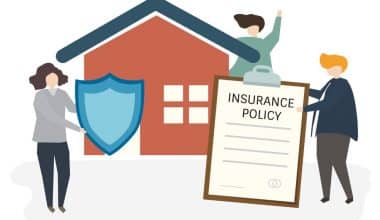Home insurance is quite beneficial if you live in Florida and are planning to buy a house or condo. In fact, when you buy a house, most lenders will demand that you have a policy. In the event of a catastrophe or other covered loss, homeowners insurance, often known as home insurance, can safeguard you, your possessions, and your house.
The Business Yield will include details on the best home insurance providers in Florida in this guide, taking into account each provider’s features, pricing, and perks. Note that rates for homeowners insurance differ depending on your region, your home’s square footage, and other factors.
Florida Home Insurance Review
Living in the Sunshine State comes with risks, even though people who prefer warm weather may find Florida tempting. Based on a pricing analysis by NerdWallet, homeowners insurance in Florida typically costs $2,385 per year or roughly $199 per month. Furthermore, that figure is rising.
The frequency of natural disasters and the costs of lawsuits, which insurers pass along to customers, have caused Florida’s house insurance prices to skyrocket in recent years. Many insurers have hiked premiums, ceased offering insurance in Florida, or have simply gone out of business as a result of significant losses. Hurricane Ian’s massive claim losses have put additional strain on a market that was already under duress.
When it comes to purchasing home insurance, Floridians still have choices.
Florida Home Insurance Coverage
Here are the contents of each coverage category included in typical house insurance policies in Florida.
#1. Dwelling coverage.
If an issue covered by the policy damages your home, dwelling coverage will replace or repair it. It is advisable to purchase housing coverage in an amount equivalent to the cost of rebuilding your home using local labor and material prices. You can get assistance with this estimate from your home insurance provider or agent.
#2. Other structures.
This insurance covers extra buildings on your land, like a shed, barn, or fence. Although the amount varies per insurer, coverage for other structures is normally set at 10% of the dwelling coverage of the house. If 10% isn’t enough, you might be able to seek an endorsement or purchase additional dwelling coverage to raise the amount.
#3. Personal belongings.
Replacement costs for lost or stolen property are covered by personal property insurance. Usually, between 50% and 70% of your housing coverage is the percentage at which the coverage limit is set. If necessary, you can purchase a greater limit.
#4. Liability protection.
Damages and injuries you unintentionally inflict on other people are covered by liability insurance. It covers fees for settlements or judgments rendered against you as well as your legal defense if you are held legally responsible for the harm or property damage of others. Usually, liability limitations begin at $100,000, although that might not be sufficient. It makes sense to get adequate liability insurance to shield your assets and resources in the event of a lawsuit.
#5. Medical payments to others.
This insurance covers non-household members’ minor injuries sustained on your property, regardless of responsibility. Small quantities are sold of it, usually $1,000 to $5,000.
#6. Additional living costs.
When you suffer damage from a covered event, such as a fire, and are temporarily unable to live at home, additional living expenses coverage helps cover additional expenditures like food and hotel stays. Usually, 20% to 30% of your house coverage is allocated to it. Another name for this coverage is loss of use.
What isn’t Covered by Homeowners Insurance?
#1. Risks
Policies for homeowners’ insurance usually cover a broad range of risks and occurrences that could harm your house or possessions. There are, nevertheless, a number of frequent exclusions, circumstances, or occurrences that are not covered by normal insurance. You will probably need to purchase additional or private coverage if you wish to be covered for many of these particular goods.
#2. Natural disasters:
Numerous natural disasters occur that are not covered by regular insurance. Flood damage is typically not covered by standard home insurance. Generally speaking, basic home insurance policies do not cover earthquake damage. Large-scale or progressive sinkhole damage is frequently not covered by insurance, even if some provide restricted coverage for unintentional and abrupt sinkhole damage.
#3. Repairs:
Certain costs related to home maintenance and repairs are not covered. Damage from drain or sewer backups is often excluded by typical plans. In general, coverage does not extend to replacements or repairs resulting from routine use. In addition, damage from mold, mildew, termites, rats, and other pests might not be included, particularly if preventative measures are not followed.
#4. Certain activities:
Finally, a great deal of acts do not qualify as covered. Damage from nuclear accidents or radiation is typically not covered by normal homeowners insurance plans, nor is damage resulting from acts of war, terrorism, or civil unrest. It is doubtful that your insurance coverage will cover you if you purposefully cause damage to your own property.
Furthermore, following an insured loss, the additional expenses associated with rebuilding or repairing your house to conform to new building rules or legislation may not be entirely covered by regular insurance.
Best Florida Home Insurance
#1. Allstate:
Allstate’s long list of possible discounts is one of the reasons they are one of the top Florida home insurance providers. It’s important to note that the majority of policyholders can easily take advantage of several of these discounts, including the welcome and loyalty discount for both new and renewing customers, the Easy Pay Plan for those who set up automatic payments, and even an early signing discount for registering with Allstate at least seven days prior to the effective date of your policy. However because Allstate’s Florida house insurance is underwritten by a subsidiary, there might not always be a discount available.
#2. Chubb
Because of their Masterpiece homeowners insurance policy and other customized services for policyholders with high-value houses and assets that require more comprehensive coverage, Chubb is one of our top choices for Florida home insurance.
Furthermore, Chubb could be a suitable option for Florida homeowners who own expensive properties, priceless items, own businesses, or perhaps require services for hazards related to horses.
#3. State Farm
Policyholders who prefer in-person transactions will find it convenient because State Farm, the leading U.S. home insurer based on market share, offers local exclusive agents in over 200 towns around Florida. State Farm and Rocket Mortgage collaborate to provide homeowners with seamless homebuying and insurance assistance. There are several strategies to reduce the cost of your house insurance from State Farm as well. Landlord, auto, and umbrella insurance are among the other State Farm products.
#4. Kin
Only homes in places renowned for having substantial effects from natural disasters—Louisiana, Mississippi, South Carolina, Alabama, Arizona, and Florida—are eligible for Kin’s coverage. Compared to traditional insurers, Kin prices its insurance products using an AI-driven underwriting formula that evaluates value and risk using permit data, property records, and satellite images. The company’s basic coverage is made especially to shield homes from costly repair bills brought on by a variety of hazards, such as explosions, windstorms, fires, smoke, lightning strikes, hail, and vandalism.
Additionally, the fact that Kin offers sinkhole and flood insurance as an endorsement of the house policy rather than as a stand-alone policy is another distinctive feature. Demotech, a financial strength rating organization, has given Kin an A (Exceptional) grade; AM Best has not assigned it.
#5. Tower Hill
Tower Hill was established in Gainesville, Florida, and is well-versed in the challenges of the Florida homeowners insurance market, despite the fact that it currently provides coverage in 17 states. But Tower Hill has decided to discontinue its personal lines from Florida due to the difficult Florida market, particularly after Hurricane Ian, and instead launch the “Tower Hill Exchange,” a reciprocal insurance scheme. In April 2022, AM Best lowered Tower Hill Prime’s Financial Strength Rating (FSR) to B+ (Good), but Demotech rated Tower Hill Exchange with a financial strength rating of A (Exceptional) in late 2022.
#6. Florida Peninsula
The Florida Peninsula is a suitable option because it only offers house coverage in the Sunshine State. If cost is your first priority, you can choose more comprehensive coverage by selecting from a variety of endorsements, or you can go with more basic coverage. Due to its smaller market share, Florida Peninsula is not rated by J.D. Power or AM Best; nonetheless, Demotech has given the Boca Raton-based company an A (Exceptional) financial stability rating.
#7. Citizens
Citizens is the insurance company of last resort, backed by the state of Florida under the “Fair Access to Insurance Requirements” (FAIR) scheme. Either you must demonstrate that you were unable to obtain coverage in the private home insurance market or the quotes you receive exceed 20 percent of what a comparable estimate from Citizens would have cost in order to be eligible for coverage. Although the rollout for current customers may occur at different periods, all new Citizens policyholders will also need to maintain a flood insurance policy.
Even if the insurance offered by Citizens may not always be comparable to those offered by commercial insurers and, in certain situations, may be the only option, having coverage is still preferable to having to pay for coverage out of cash. A few helpful endorsements are provided by the carrier, such as replacement costs for personal property and sinkhole coverage.
Florida Home Insurance costs
Homeowners insurance in Florida normally costs between $1,700 and $2,700 per year. This is predicated on $100,000 in liability insurance and $300,000 in dwelling coverage.
However, the amount of coverage you require will determine how much insurance will cost you. For instance, our research indicates that you should budget between $3,000 and $4,000 a year if you reside in a more expensive home and want $500,000 in dwelling coverage.
There are several more elements that can influence your annual house insurance prices in addition to the value of your home. These are a handful:
- Age of your house. Insurance for older properties is usually more expensive than for newly built homes.
- The construction of your house. Insurance for wood-framed homes is usually more expensive than for brick or block construction.
- Where your home is? You’ll probably have to pay more for coverage if you live close to the shore or in a location that frequently floods during hurricanes or other storms.
- Your history of claims. For the previous three to five years, if you haven’t filed a claim, you might be eligible for discounts or other benefits.
- Your credit. You can pay less for coverage than someone with a bad credit history if you have good credit.
Average cost of homeowners insurance in Florida by city
| City | Average annual rate | Average monthly rate |
| Boca Raton | $2,945 | $245 |
| Bradenton | $1,850 | $154 |
| Cape Coral | $2,175 | $181 |
| Fort Lauderdale | $3,985 | $332 |
| Fort Myers | $2,100 | $175 |
| Gainesville | $1,625 | $135 |
| Hialeah | $5,090 | $424 |
| Hollywood | $4,015 | $335 |
| Homestead | $4,790 | $399 |
| Jacksonville | $1,935 | $161 |
| Kissimmee | $2,435 | $203 |
| Lake Worth | $2,955 | $246 |
| Lakeland | $2,335 | $195 |
| Miami | $4,740 | $395 |
| Naples | $2,465 | $205 |
| Ocala | $1,720 | $143 |
| Orlando | $2,320 | $193 |
| Pensacola | $2,270 | $189 |
| Pompano Beach | $3,925 | $327 |
| Port St. Lucie | $2,800 | $233 |
| Sarasota | $1,940 | $162 |
| St. Petersburg | $1,915 | $160 |
| Tallahassee | $1,675 | $140 |
| Tampa | $2,235 | $186 |
| West Palm Beach | $2,900 | $242 |
How to lower my Florida homeowners insurance?
There are numerous methods to reduce the cost of homeowners insurance coverage in Florida:
#1. Compare quotations.
Comparing quotes from many homeowners insurance companies is one of the best methods to minimize costs for Florida homeowners insurance.
#2. Consult an agent.
Look for or ask an agent about any available discounts when you’re searching for insurance, as you might qualify for them.
#3. Ask about discounts
A good number of simple house insurance savings are available to the majority of homeowners. For instance, if you install security alarms, have an electronic policy, or reside in a gated neighborhood, Kin may automatically reduce your bill.
#4. Fortify your roof
If you currently own a home in Florida, you might want to think about strengthening the structure of your roof as well as the connections to the stem walls of your house. Among the crucial areas to review and enhance are:
- Roofs.
- Windows and any connected buildings.
- Connect the floor, wall, roof, and foundation as one system.
- Your house is better shielded from hurricanes, strong winds, and hail by having a strengthened roof.
#5. Lower your personal property coverage
To ensure complete protection in the event of a loss, we urge everyone to make the most of their coverage. However, by limiting your personal property insurance to only include the necessities, you can reduce your rate. To be clear, this means that in the event of a complete loss, you will not receive as much; therefore, you should only choose this course of action if you have no other options.
#6. Change the coverage limits or the deductible.
Your premiums may go down if you raise your deductible, or the amount you pay after filing a claim. Reducing your coverage limits (the amount the insurance company pays following a claim) works in the same way. Even though both choices may result in cheaper premiums, bear in mind that in the event that you must file a claim, each may result in more out-of-pocket costs.
#7. Combine your insurance policies.
When a customer chooses to buy additional coverage, like life or pet insurance, or to insure both their home and vehicle, most insurance providers will give them a discount. Bundling is a method that frequently results in lower insurance costs than using separate companies for your house and car insurance.
Florida Home Insurance Crisis
The house insurance industry in Florida has been in disarray for some time now. A number of insurers have left the state, discontinued their offerings, and tightened their qualifying standards.
Other national carriers, like Allstate, Nationwide, and State Farm, broker through another resource when issuing coverage in Florida. These businesses are typically classified as non-admitted carriers, which means they may not be subject to state regulations or lack governmental support.
Who is the biggest home insurer in Florida?
Citizens Property Insurance Corp. has emerged as Florida’s largest property insurer as private insurers have faltered due to storm-related claims or reduced business in the state. The quantity of properties it insures has increased threefold to about 1.4 million since 2020.
Which Insurance Companies Are Pulling Out of Florida?
Over 16 property insurance companies have chosen to stop taking on new clients, according to News4JAX in Florida. Notably, Farmers Group stopped creating new policies nationwide, and AIG stopped insuring new homes along Florida’s shoreline.
Additionally, the Pensacola News Journal reports that AIG subsidiary Lexington Insurance, AAA, Bankers Insurance, and Centauri Insurance are among the other carriers that have reduced or stopped offering property insurance plans in Florida.
Why are Home Insurance Companies leaving Florida?
Insurers are reconsidering their coverage in states like Florida and California due to the frequency of natural disasters in these areas. The most frequent natural disasters in Florida, according to the Florida Division of Emergency Management, include floods, hurricanes, tropical storms, severe storms, tornadoes, and wildfires.
Furthermore, Florida has more tornadoes per square mile than any other state in the US. AIG and Farmers made their selections based on disaster losses such as hurricanes and floods.
Why is it difficult to get homeowners insurance in Florida?
Seven of the local, residential-only insurers were insolvent as a result of the litigation costs being too high. The expenses have resulted in lower coverage offerings or higher premiums for national insurers. Hurricane danger in Florida has contributed, as it has in many other states due to harsh weather.
Is Allstate good for homeowners insurance in Florida?
Because of its excellent customer service, comprehensive coverage, and affordable rates, Allstate is among our top picks for Florida homeowners insurance. Since its founding in 1931, Allstate has established itself as one of the top insurers in the country in a number of areas, including renters’ and homeowners’ insurance.
What is the cheapest homeowners insurance in Florida?
The cheapest homeowners insurance in Florida is Tower Hill for $104/mo.
Why is homeowners insurance so expensive in Florida?
The cost of homeowners insurance is expensive because of Florida’s geographic location, which also makes it vulnerable to other natural calamities like flooding and sinkholes. Due to Florida’s hurricane frequency and intensity, insurers have had to increase rates in order to cover anticipated damages.
Does State Farm provide home insurance in Florida?
State Farm provides a variety of insurance plans, including homeowners insurance, in a number of states, including Florida.
CONDO INSURANCE FLORIDA: How Does It Work?
BEST CHEAP CAR INSURANCE IN FLORIDA 2023
FLORIDA NO-FAULT LAW: All You Need To Know






